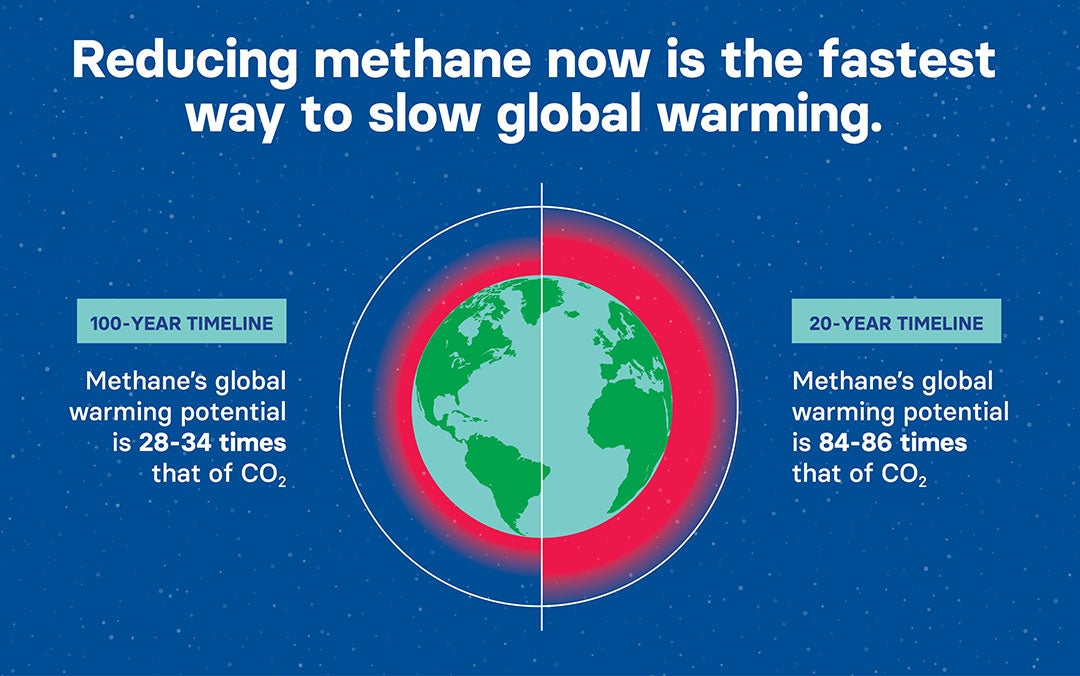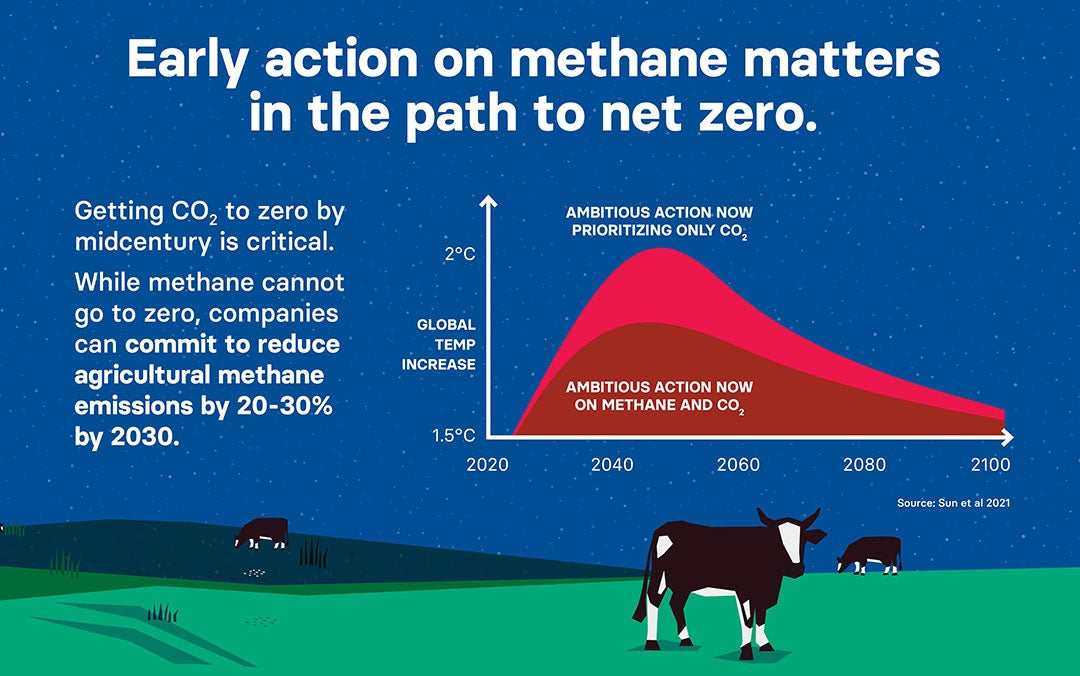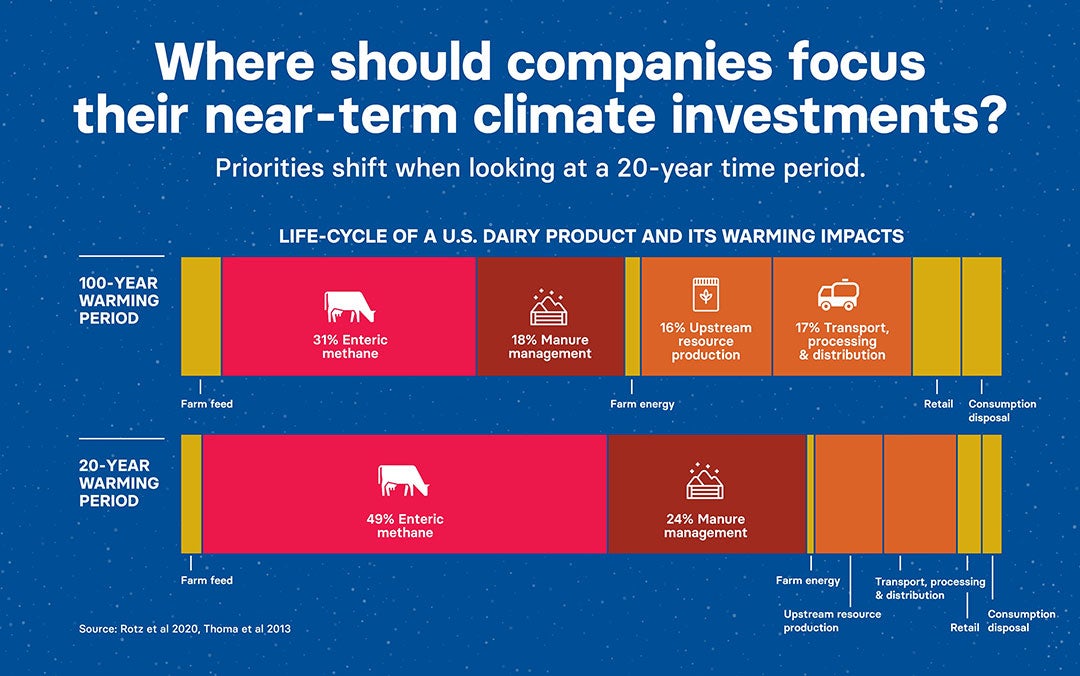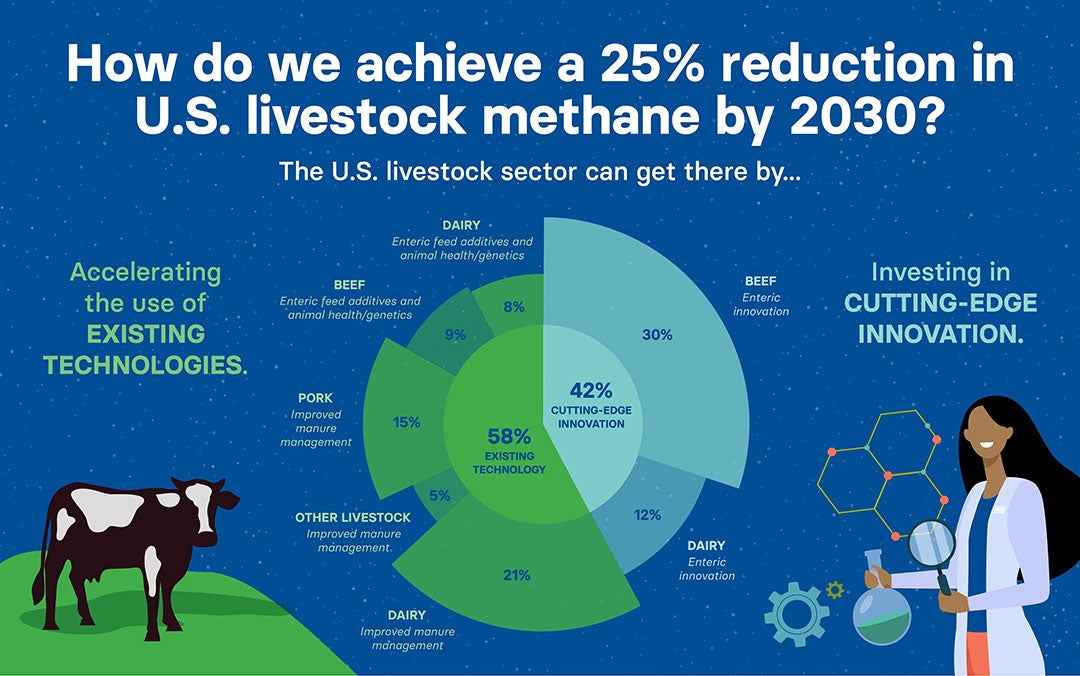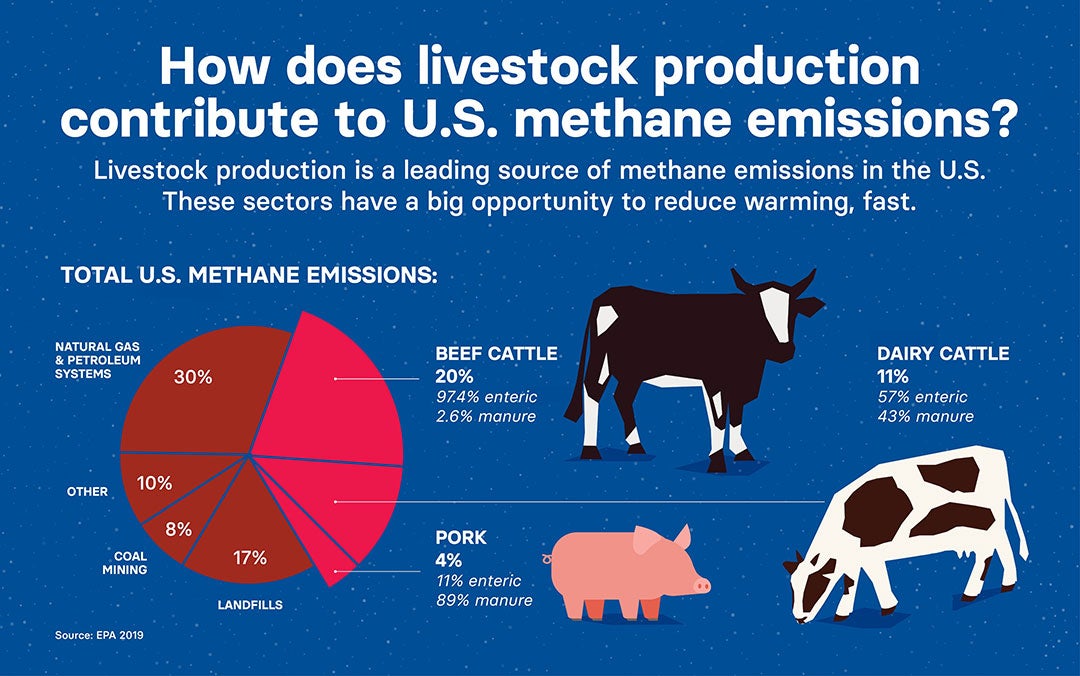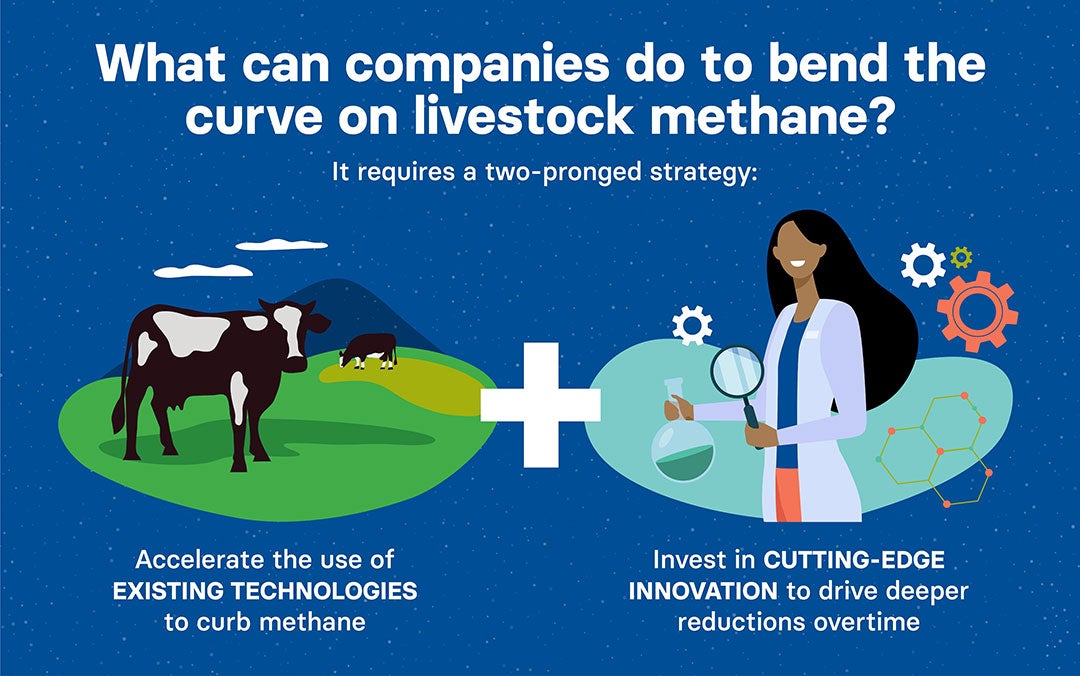Methane Emissions in Animal Agriculture
Reducing methane now is one of the fastest ways to slow global warming in the near term, and a critical part of avoiding the worst consequences of climate change. Agricultural emissions from livestock and rice are approximately 40% of human-caused global methane emissions. At the same time, rice and livestock are key dietary staples around the world and provide livelihoods for millions of farmers. Food and agriculture companies, who rely on these commodities in their supply chains, have an opportunity to prioritize methane reductions.
Danone commits to cut dairy methane emissions in partnership with farmers and EDF
Looking for more business-forward content on reducing agricultural methane emissions? Check out these blog posts by EDF+Business experts for help on your journey.
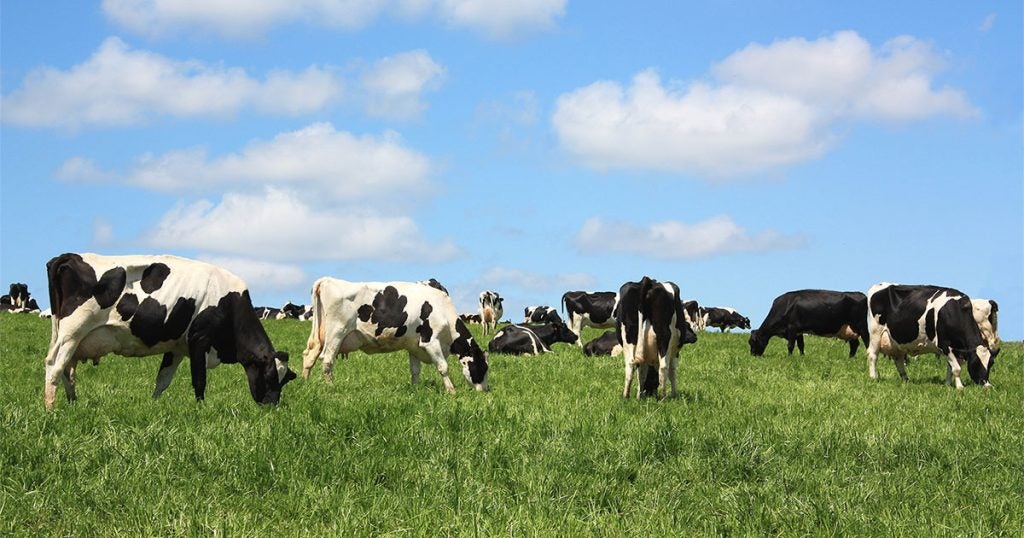
Demystifying the enteric solutions market for food and agriculture companies
New technologies are coming to market that food and agriculture companies can use to reduce methane emissions.
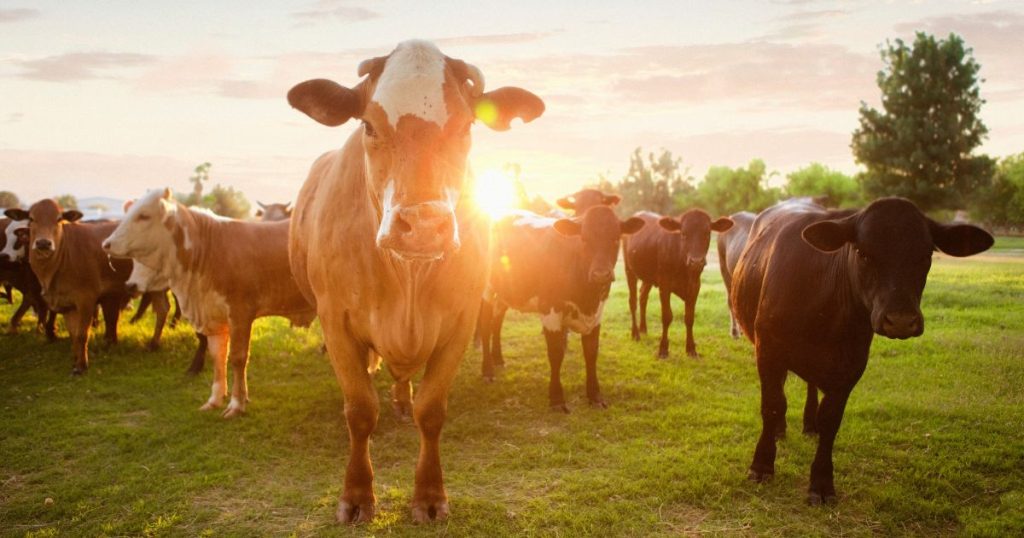
Tackling Enteric Methane
As companies and policymakers look to drive new opportunities to reduce agricultural methane emissions, understanding where producers are today and how to best address their needs is critical. Environmental solutions are often created in a vacuum, without the end-user’s, in this case farmers and ranchers, needs in mind, which can prevent adoption at scale. EDF’s report shares new findings about dairy and beef farmers and ranchers’ perspectives on enteric methane emissions and mitigation solutions: how likely they would be to adopt an enteric solution today, what kinds of barriers would prevent them from doing so and what features or incentives could streamline implementation.
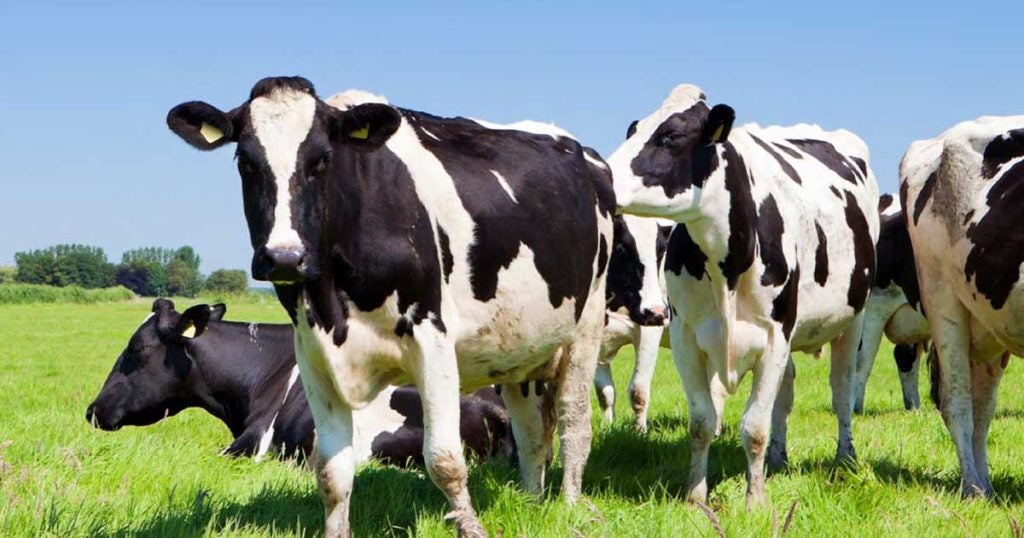
Transform to Net Zero Manure Management Report
Strategies for how companies across the livestock supply chain can meet methane reduction targets by accelerating the use of existing manure management technologies by the Dairy Subgroup of Transform to Net Zero Coalition.
The paper outlines the role of Anaerobic Digesters in manure management, the challenges to scaling adoption, including financial, regulatory, GHG accounting, reporting and claiming, and possible paths forward.
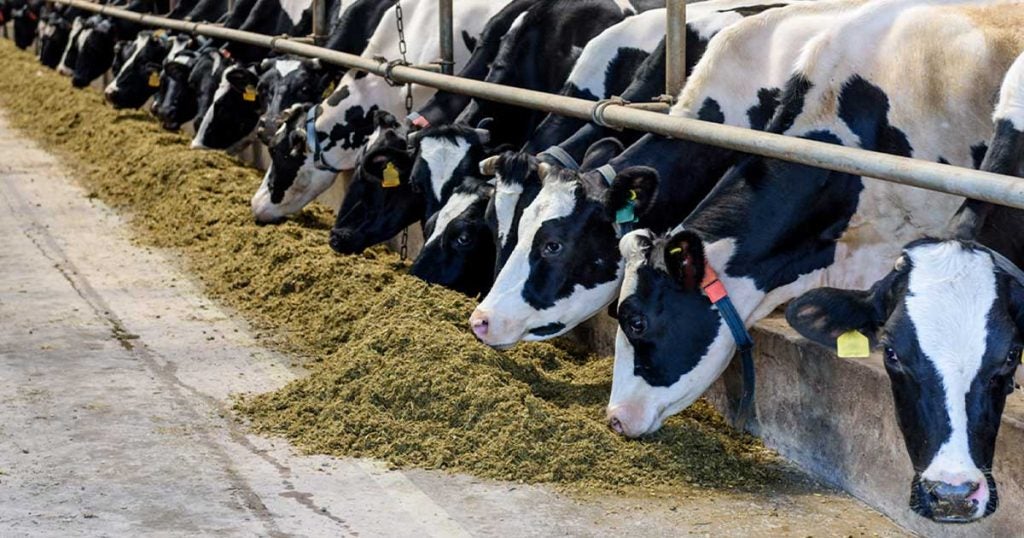
Our Experts

Katie Anderson
Director, EDF+Business, Resilient Food and Forests

Nicole Jenkins
Project Manager, EDF+Business, US Beef Sector Lead

Amy Morse
Podcast Producer and Content Manager

Vrashabh Kapate
Manager, Dairy Industry, EDF+Biz | Climate & Agriculture
